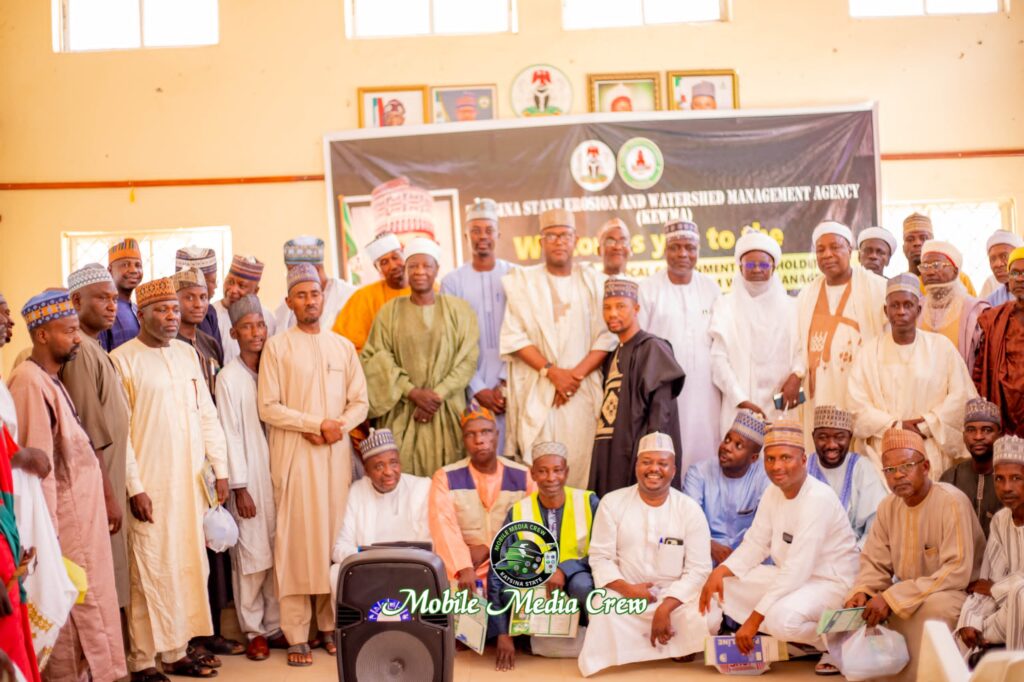From Muawuya Bala Idris, Katsina
The Katsina State Erosion Watershed and Management Agency (KWEMA) has commenced a multi-sectoral stakeholder engagement aimed at finding lasting solutions to the growing threats of flooding, erosion, and watershed degradation across the state.
The engagement, held in Katsina, brought together officials from local government areas, traditional rulers, federal government agencies, the State Emergency Management Agency (SEMA), as well as representatives from the ministries of health and environment, among others.
Speaking at the event, the Director General of KWEMA, Mannir Ayuba Sullubuwa, said the initiative was part of the state government’s proactive strategy to curb the devastating impact of environmental degradation on livelihoods, infrastructure, and agricultural productivity.
Sullubuwa noted that the engagement would identify critical areas that have experienced severe flooding and erosion, assess the number and condition of stormwater drainage systems across the 34 local government areas, and determine existing gaps in early warning systems at both state and local levels.
“The objective is to produce a comprehensive report detailing the extent of erosion, watershed degradation, and stormwater risks in affected areas. The recommendations from this engagement will be submitted to the government for immediate and strategic interventions,” he said.
He emphasized the collective responsibility of safeguarding the environment, stating, “Together, we can restore our ecosystem, protect our environment, and secure a more resilient Katsina State for future generations.”
Earlier, the Kauran Katsina and District Head of Rimi Local Government, Aminu Nuhu Abdulkadir, commended the agency’s efforts, describing the engagement as the first of its kind in the state.
He disclosed that Rimi has suffered repeated flood disasters and erosion, urging the government to expedite interventions to protect lives and property in vulnerable communities.
Experts from Umaru Musa Yar’adua University, SEMA, and the State Urban and Regional Planning Board delivered technical presentations, highlighting the environmental and socio-economic impacts of erosion and flooding, while offering practical solutions for mitigation and adaptation.


